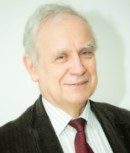
Plenary Lecture
Energy Efficient Renovation of Ventilation in Residential Buildings and Educational Premises in Cold Climate

Professor Teet-Andrus Koiv
Department of Environmental Engineering
Tallinn University of Technology
Estonia
E-mail: teet.koiv@ttu.ee
Abstract: The presentation describes the situation in schools and apartment buildings because their indoor climate is the most problematic. An overview of the indoor climate in schools and apartment buildings is given on the basis of their maximum CO2 levels. Recent studies in Estonia have shown very high CO 2levels in the classrooms of unrenovated schools. Unfortunately, in many renovated schools the situation is not much better. This is due to excessive economising. The ventilation systems often work with partial productivity. Researches show high CO2 levels in partially renovated apartment buildings.
As the density of students in classrooms is high, mechanical ventilation with heat recovery is required. The question is whether it should be central or local classroom-based.
The possible solutions of ventilation in renovating old apartment buildings are:
-Balancing ventilation with heat recovery - difficult to use in the renovation of old apartment buildings. The problem is: Where to install supply air channels?
-Apartment based balancing ventilation with heat recovery - difficult to use in old apartment buildings as people do not like duct installation in a flat. -Exhaust mechanical ventilation with the heat pumps and fresh air valves in living rooms - one of the possible systems.
-Installation of room based air handling units (AHU) and exhaust ventilators in the WC, bathroom and kitchen - one of the possible most efficient solutions.
-Mechanical exhaust ventilation (not energy efficient as there is noheat recovery)
-Fresh air valves in living rooms with natural exhaust ventilation – high heating costs because there is no heat recovery.
As exhaust mechanical ventilation with heat pumps and room based AHU are usable and energy efficient solutions, the presentation focuses on their research results.
Brief Biography of the Speaker: T.-A.Koiv received his M.Sc. in Thermal Engineering from the Tallinn University of Technology and the PhD at the Institute of Civil Engineering of St Petersburg in Heating, Heat Supply, Ventilation and Air Conditioning in 1978. Since 2003 he has been Full Professor of the Chair of Heating and Ventilation at the Tallinn University of Technology, Estonia. He has read several courses in the field of Thermal Engineering, Heat Supply, Heating, Ventilation and Air Conditioning, Renovation of HVAC systems at the Tallinn University of Technology. At present he supervises 6 PhD students. Prof T.-A.Koiv has 18 inventions and patents in the field of Heating and Heat Supply. He is an active researcher in the field of energy efficiency, indoor climate and building service systems. He is the author of the 10 books and textbooks. T.-A. Koiv has published more than 140 papers in books, journals and conference proceedings. Prof. Koiv has received REHVA Professional Award for energy efficiency of buildings (2013) and an award of Silver medal for his inventive activities at the Exhibition of the Achievements of National Economy.
He is vice dean (in the field of science) of the Civil Engineering Faculty of the Tallinn University of Technology and head of several projects (Baltic cooperation in energy efficiency and feasibility in urban planning – ENEF, Development of efficient technologies for airchange and ventilation necessary for the increase of energy efficiency of buildings, Decreasing the consumption of heat energy by awareness rising and performance of consumers based on measurements of individual heating costs, Minimum requirements for energy performance - additional analysis, New international master program “Energy Efficiency of Buildings”, Energy Auditing and Certification of Buildings, Doctoral School of Civil and Environmental Engineering). He is a member of CBI and WSSET. He has been reviewer of Journals and member of Scientific Committee of Conferences. His research and activity has made significant impact to national scientific and engineering communities.